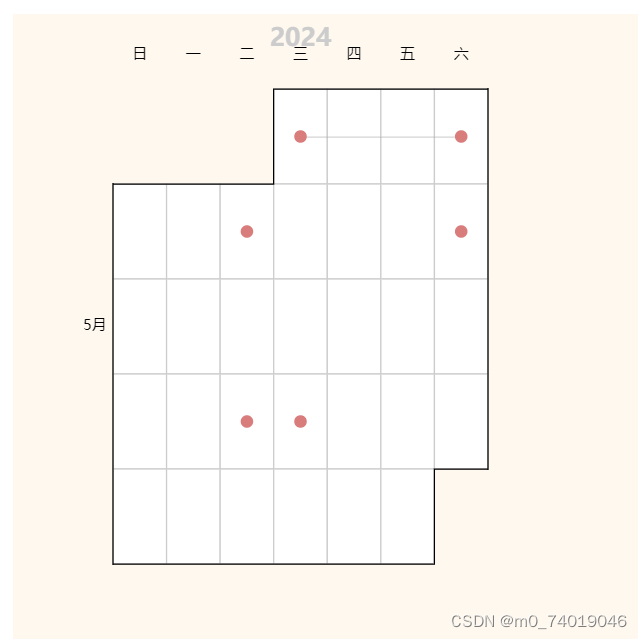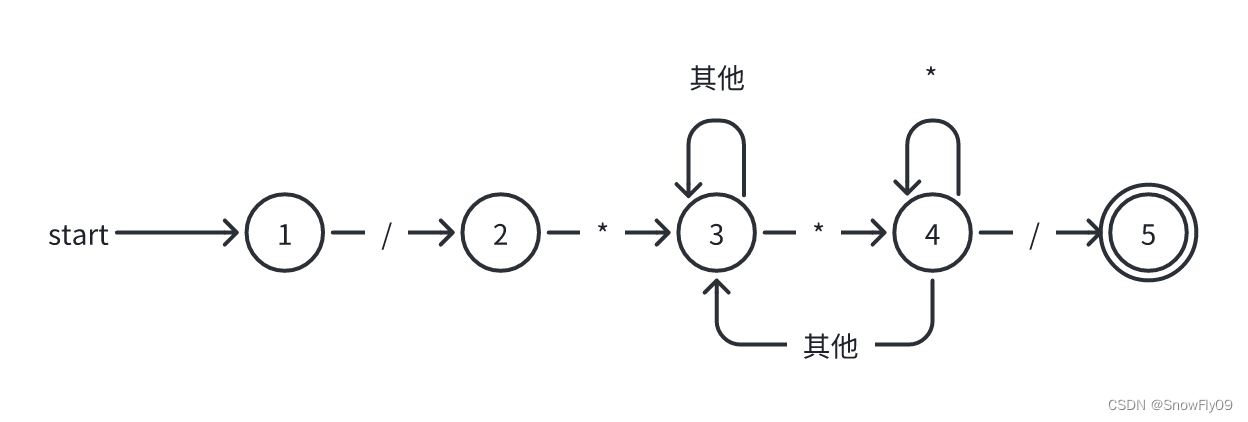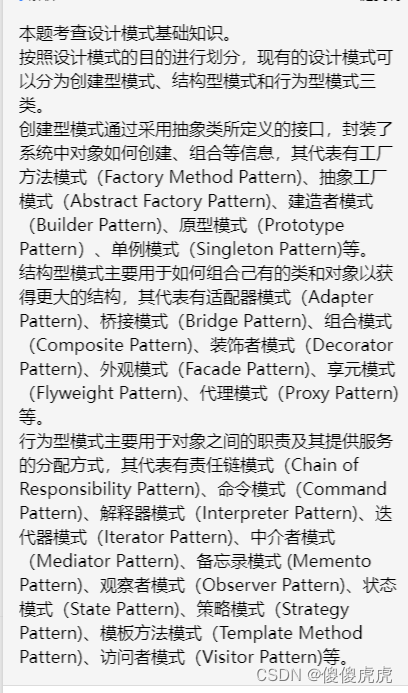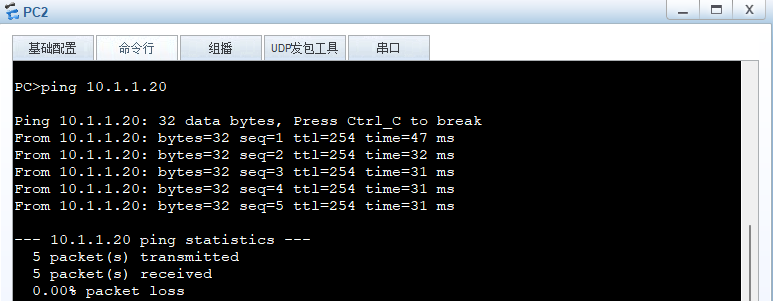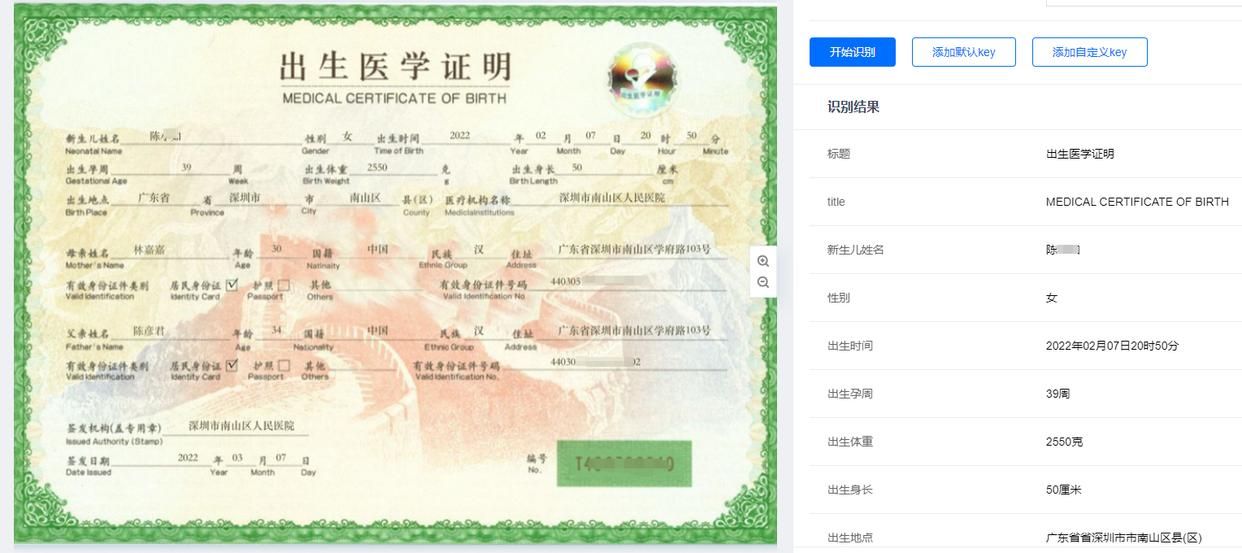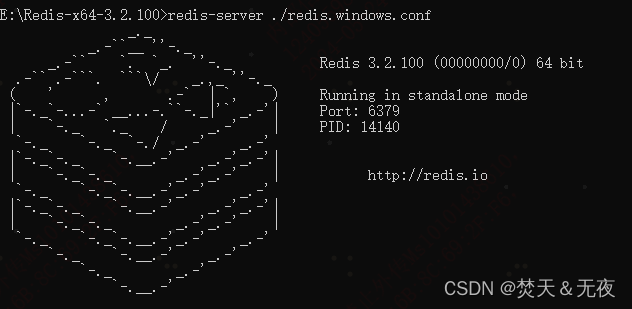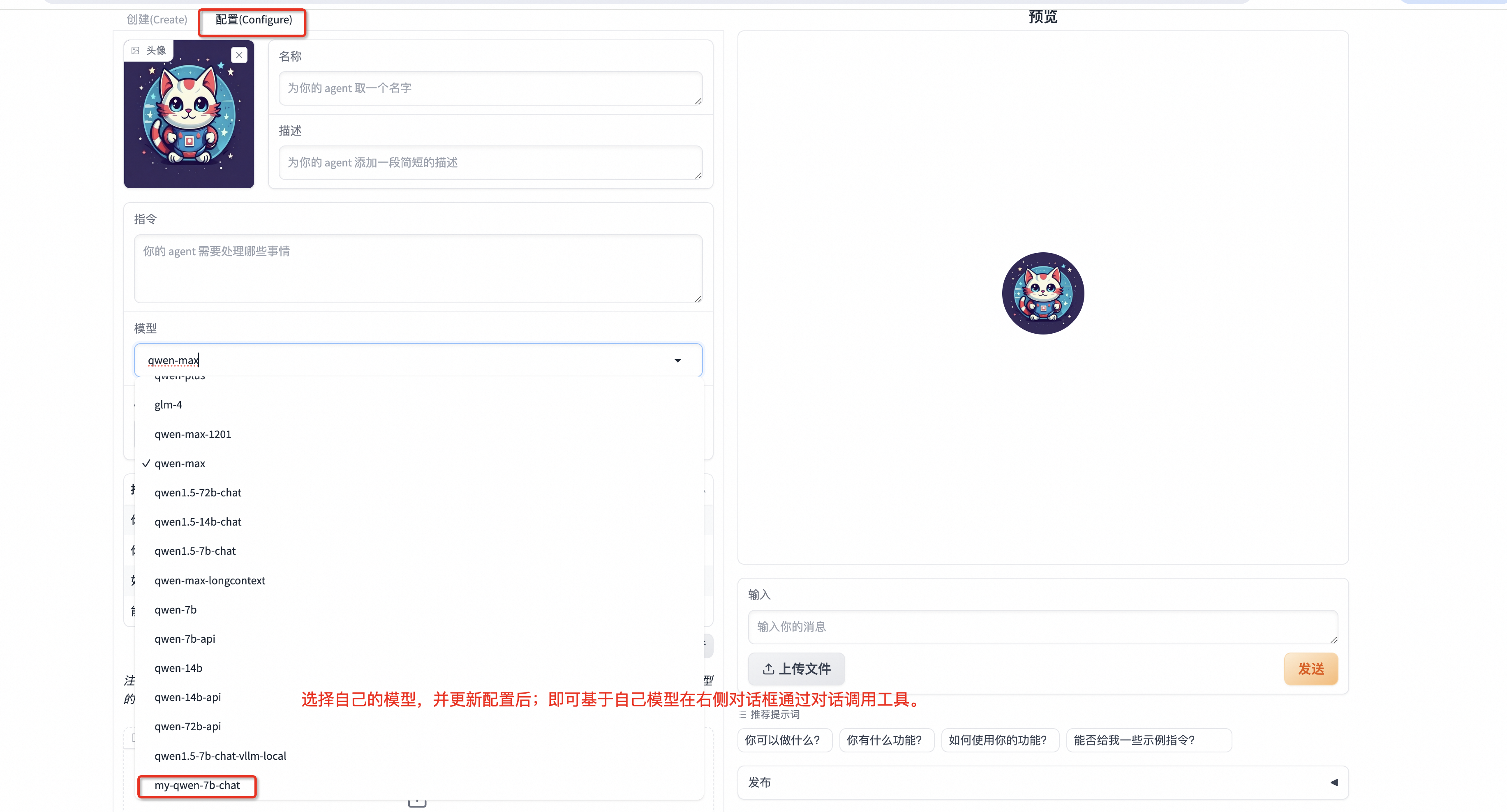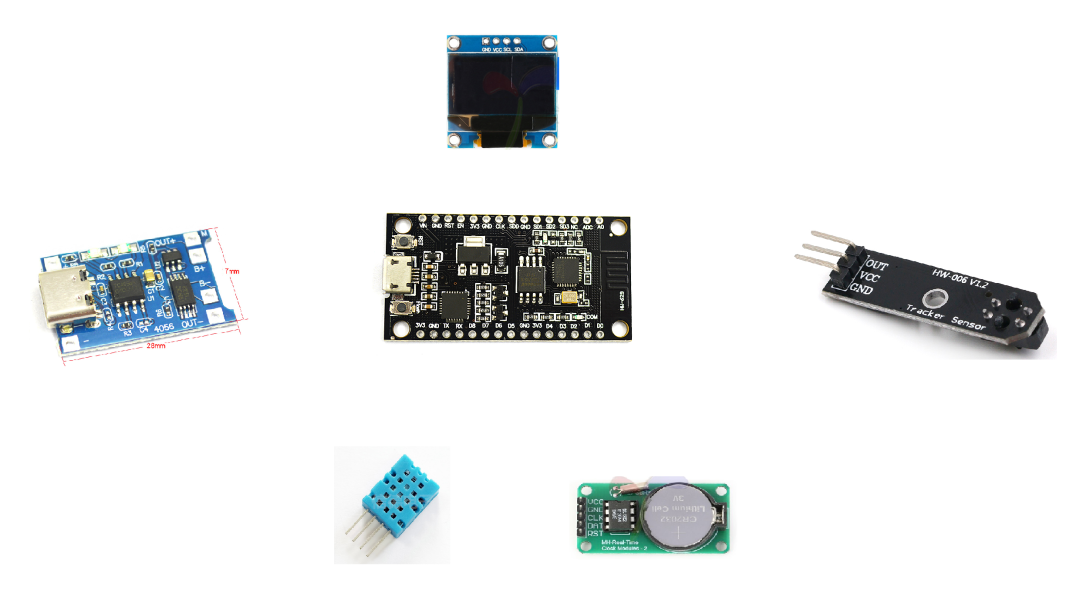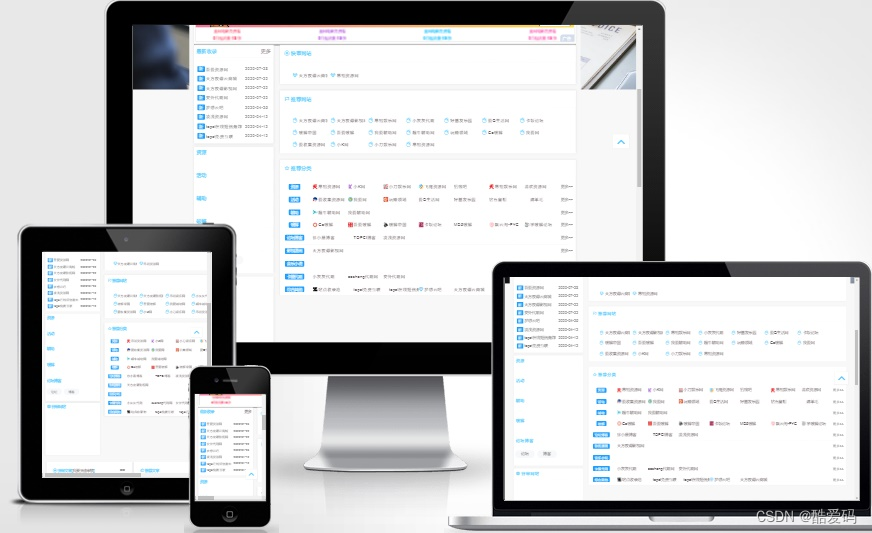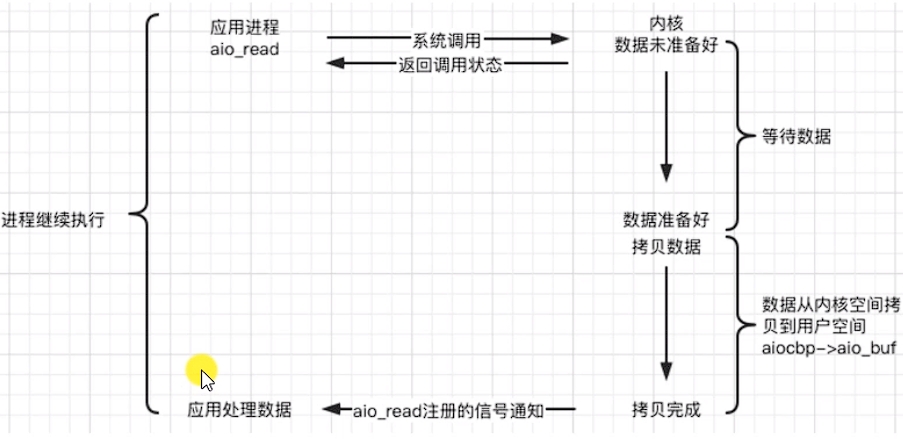💕喜欢的朋友可以关注一下,下次更新不迷路!💕(●'◡'●)

目录
一、Mybatis为何物?👌
二、快速入门🤣
1、新建项目😊
2、数据库建表😊
3、导入依赖的jar包😊
4、根据表建pojo类😊
5、编写mapper映射文件(编写sql)😊
6、编写全局配置文件(主要是配置数据源信息)😊
7、测试😊
三、快速入土😢
代理开发😂
1、定义与SQL映射文件同名的Mapper接口,并且将Mapper接口和SQL映射文件放置在同一目录下。
2、设置SQL映射文件的namespace属性为Mapper接口全限定名。
3、在Mapper接口中定义方法,方法名就是SQL映射文件中sql语句的id,并保持参数类型和返回值类型一致。
4、通过SqlSession的getMapper方法获取Mapper接口的代理对象,并调用对应方法。
Mybatis核心配置--mybatis-config.xml😂
1、可以连接多个数据库
2、配置标签
案例😂
1、 建表
2、实体类
3、测试类
4、mybatisx插件
根据方法自动生成mapper映射文件
5、查询(查询所有)
6、查看详情(根据id查询一个)
7、条件查询
根据参数接收(无参/一个参数/两个参数/)
散装参数(模糊匹配)
对象参数
map参数
动态条件查询(用户输入条件时,是否所有条件都会填写。不是,哥们🤣👌)
使用if,choose,when设定条件
8、添加
主键返回
9、修改
修改全部字段
修改动态字段
10、删除
单个删除
批量删除
注解开发😍
一、Mybatis为何物?👌
🤦♂️恶臭的描述: MyBatis 是一个优秀的持久层框架,它对JDBC的操作数据库的过程进行封装,让开发者只需要关注 SQL 本身,而不需要花费精力去处理例如注册驱动、创建connection、创建statement、手动设置参数、结果集检索等JDBC繁琐的过程代码。
❤️舒服的描述:
不需要手动编写 JDBC 代码来执行 SQL 语句,也不需要处理数据库连接的创建和关闭。
所有的数据库操作都被抽象成了简单的 Mapper 方法调用。 (伟大无需多言!)

Mybatis中文官网
二、快速入门🤣
前言:
完整结构图
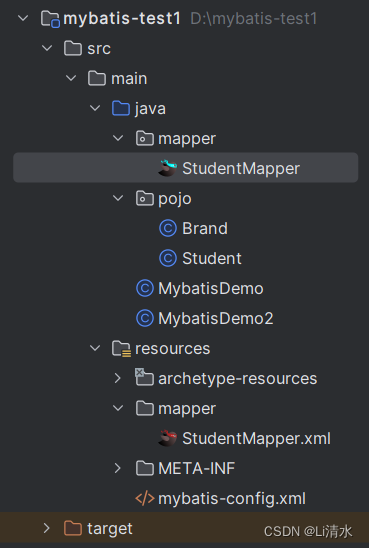
只需要通过如下几个步骤,即可用mybatis快速进行持久层的开发
- 编写全局配置文件
- 编写mapper映射文件
- 加载全局配置文件,生成SqlSessionFactory
- 创建SqlSession,调用mapper映射文件中的SQL语句来执行CRUD操作
🤣话不多说,直接Mybatis启动!🤣
1、新建项目😊
java8
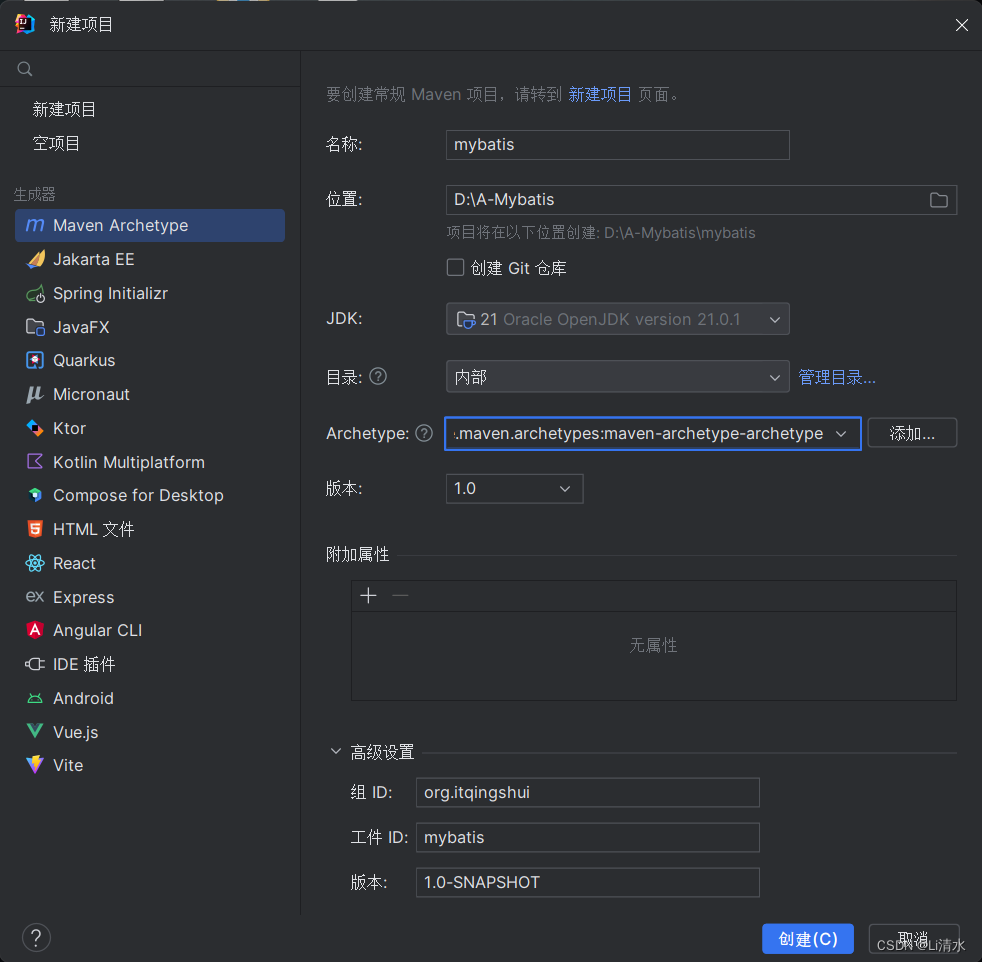
2、数据库建表😊
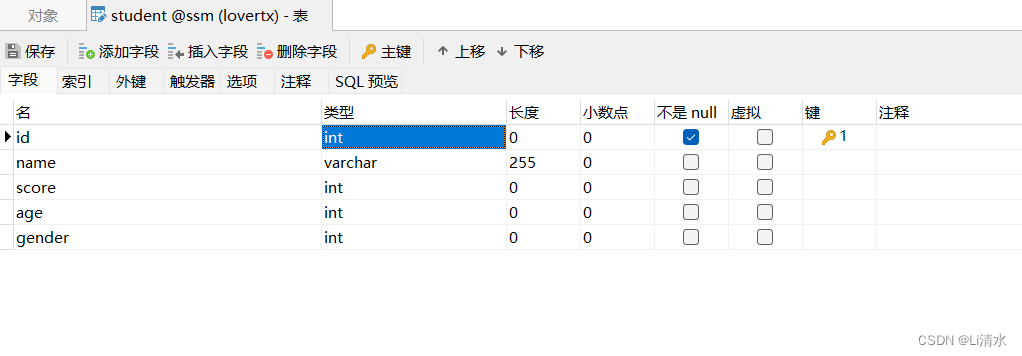
3、导入依赖的jar包😊
<project xmlns="http://maven.apache.org/POM/4.0.0" xmlns:xsi="http://www.w3.org/2001/XMLSchema-instance"
xsi:schemaLocation="http://maven.apache.org/POM/4.0.0 http://maven.apache.org/maven-v4_0_0.xsd">
<modelVersion>4.0.0</modelVersion>
<groupId>org.itqingshui</groupId>
<artifactId>mybatis-test1</artifactId>
<version>1.0-SNAPSHOT</version>
<name>Archetype - mybatis-test1</name>
<url>http://maven.apache.org</url>
<dependencies>
<dependency>
<groupId>org.mybatis</groupId>
<artifactId>mybatis</artifactId>
<version>3.5.6</version>
</dependency>
<dependency>
<groupId>mysql</groupId>
<artifactId>mysql-connector-java</artifactId>
<version>8.0.21</version>
</dependency>
<dependency>
<groupId>org.projectlombok</groupId>
<artifactId>lombok</artifactId>
<version>1.18.30</version>
</dependency>
</dependencies>
<build>
<plugins>
<plugin>
<groupId>org.apache.maven.plugins</groupId>
<artifactId>maven-compiler-plugin</artifactId>
<version>3.8.1</version>
<configuration>
<source>1.8</source> <!-- 替换为你的JDK版本 -->
<target>1.8</target> <!-- 替换为你的JDK版本 -->
</configuration>
</plugin>
</plugins>
</build>
</project>
4、根据表建pojo类😊
package pojo;
import lombok.*;
@Getter
@Setter
@NoArgsConstructor
@AllArgsConstructor
@ToString
public class Student{
private Integer id;
private String name;
private Integer score;
private Integer age;
private Integer gender;
}@Getter @Setter:省略set,get方法。
@NoArgsConstructor:建立一个无参构造器。
@AllArgsConstructor:建立一个全参构造器。
@ToString:建立一个tostring方法。
5、编写mapper映射文件(编写sql)😊
<?xml version="1.0" encoding="UTF-8" ?>
<!DOCTYPE mapper
PUBLIC "-//mybatis.org//DTD Mapper 3.0//EN"
"http://mybatis.org/dtd/mybatis-3-mapper.dtd">
<mapper namespace="pojo.StudentMapper">
<select id="findAll" resultType="pojo.Student">
select * from student
</select>
<insert id="insert" parameterType="pojo.Student">
insert into student(name,gender,age,score) values(#{name},#{gender},#{age},#{score})
</insert>
<delete id="delete" parameterType="int">
delete from student where id=#{id}
</delete>
<update id="update" parameterType="pojo.Student">
update student set name=#{name},gender=#{gender},age=#{age},score=#{score} where id=#{id}
</update>
</mapper>6、编写全局配置文件(主要是配置数据源信息)😊
resources包下
<?xml version="1.0" encoding="UTF-8" ?>
<!DOCTYPE configuration
PUBLIC "-//mybatis.org//DTD Config 3.0//EN"
"http://mybatis.org/dtd/mybatis-3-config.dtd">
<configuration>
<environments default="development">
<environment id="development">
<transactionManager type="JDBC"/>
<dataSource type="POOLED">
<property name="driver" value="com.mysql.cj.jdbc.Driver"/>
<property name="url" value="jdbc:mysql://localhost:3306/ssm?useSSL=false&serverTimezone=UTC"/>
<property name="username" value="lovertx"/>
<property name="password" value="1234567"/>
</dataSource>
</environment>
</environments>
<mappers>
<!-- 加载编写的SQL语句 -->
<mapper resource="StudentMapper.xml"/>
</mappers>
</configuration>7、测试😊
import org.apache.ibatis.io.Resources;
import org.apache.ibatis.session.SqlSession;
import org.apache.ibatis.session.SqlSessionFactory;
import org.apache.ibatis.session.SqlSessionFactoryBuilder;
import pojo.Student;
import java.io.IOException;
import java.io.InputStream;
import java.util.List;
public class MybatisDemo {
public static void main(String[] args) throws IOException, ClassNotFoundException {
String resource = "mybatis-config.xml";
InputStream inputStream = Resources.getResourceAsStream(resource);
SqlSessionFactory sqlSessionFactory = new SqlSessionFactoryBuilder().build(inputStream);
SqlSession sqlSession = sqlSessionFactory.openSession();
List<Student> student = sqlSession.selectList("pojo.StudentMapper.findAll");
for (Student s : student){
System.out.println(s);
}
sqlSession.close();
}
}三、快速入土😢
代理开发😂
对于
List<Student> student = sqlSession.selectList("pojo.StudentMapper.findAll");
目的:
解决原生方式中的硬编码。
简化后期执行SQL
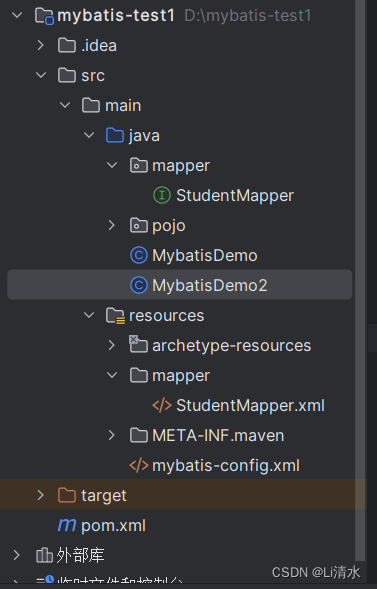
1、定义与SQL映射文件同名的Mapper接口,并且将Mapper接口和SQL映射文件放置在同一目录下。
在resources包下创建mapper包并放入StudentMapper.xml
2、设置SQL映射文件的namespace属性为Mapper接口全限定名。
将
<mapper namespace="pojo.StudentMapper">改为
<mapper namespace="mapper.StudentMapper">3、在Mapper接口中定义方法,方法名就是SQL映射文件中sql语句的id,并保持参数类型和返回值类型一致。
StudentMapper中
package mapper;
import pojo.Student;
import java.util.List;
public interface StudentMapper {
List<Student> findAll();
}4、通过SqlSession的getMapper方法获取Mapper接口的代理对象,并调用对应方法。
StudentMapper userMapper = sqlSession.getMapper(StudentMapper.class);
userMapper.findAll().forEach(System.out::println);Mybatis核心配置--mybatis-config.xml😂
1、可以连接多个数据库
可以配置多个environment,通过default属性切换不同的environment
<?xml version="1.0" encoding="UTF-8" ?>
<!DOCTYPE configuration
PUBLIC "-//mybatis.org//DTD Config 3.0//EN"
"http://mybatis.org/dtd/mybatis-3-config.dtd">
<configuration>
<environments default="development">
<environment id="development">
<transactionManager type="JDBC"/>
<dataSource type="POOLED">
<property name="driver" value="com.mysql.cj.jdbc.Driver"/>
<property name="url" value="jdbc:mysql://localhost:3306/ssm?useSSL=false&serverTimezone=UTC"/>
<property name="username" value="lovertx"/>
<property name="password" value="1234567"/>
</dataSource>
</environment>
</environments>
<environments default="development">
<environment id="development">
<transactionManager type="JDBC"/>
<dataSource type="POOLED">
<property name="driver" value="com.mysql.cj.jdbc.Driver"/>
<property name="url" value="jdbc:mysql://localhost:3306/ssm?useSSL=false&serverTimezone=UTC"/>
<property name="username" value="lovertx"/>
<property name="password" value="1234567"/>
</dataSource>
</environment>
</environments>
<mappers>
<!-- 加载编写的SQL语句 -->
<mapper resource="mapper/StudentMapper.xml"/>
</mappers>
</configuration>2、配置标签
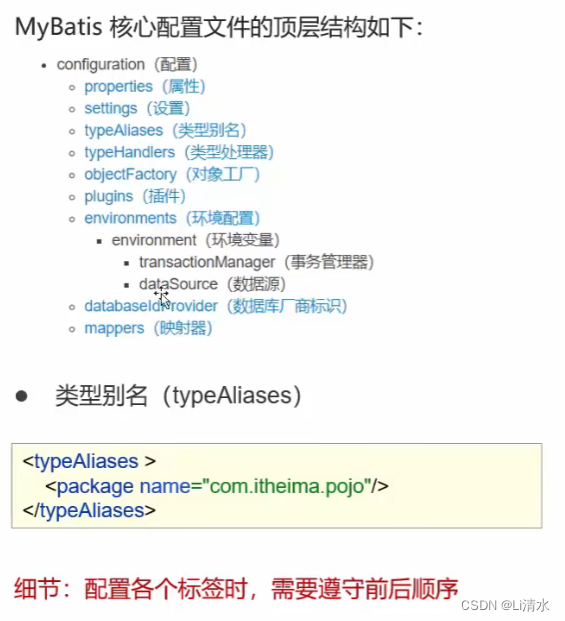
案例😂
1、 建表
id:主键
brand_name:品牌名称
company_name:企业名称
ordered:排序字段
description:描述信息
status:状态(0:禁用,1启用)
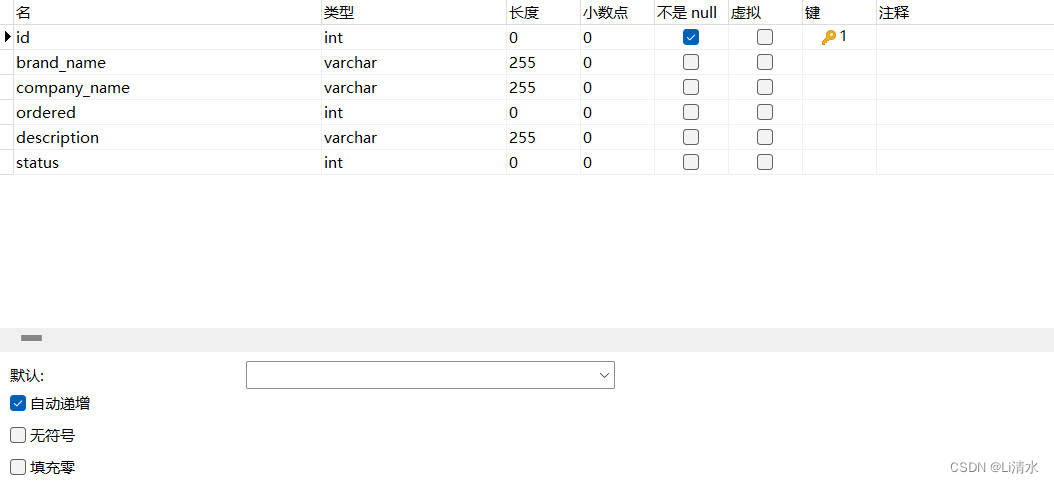

2、实体类
package pojo;
import lombok.*;
@Setter
@Getter
@NoArgsConstructor
@AllArgsConstructor
@ToString
public class Brand {
private Integer id;
private String brand_name;
private String company_name;
private Integer ordered;
private String description;
private Integer status;
}3、测试类

4、mybatisx插件

通过点击左边的红色小鸟
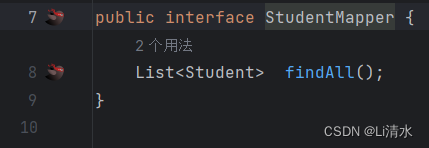
可以找到蓝色小鸟

根据方法自动生成mapper映射文件
1、第一步:在StudentMapper中
package mapper;
import pojo.Student;
import java.util.List;
public interface StudentMapper {
List<Student> findAll();
Student findById(int id);
}2、使用插件自动生成
<select id="findById" resultType="pojo.Student"></select>3、补充实际操作
<select id="findById" resultType="pojo.Student">
select * from student where id=#{id}
</select>5、查询(查询所有)
1、创建BrandMapper(先写方法,后自动写sql)
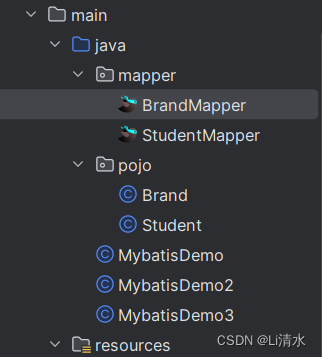
package mapper;
import pojo.Brand;
import java.util.List;
public interface BrandMapper {
List<Brand> findAll();
}2、创建BrandMapper.xml

package mapper;
import pojo.Brand;
import java.util.List;
public interface BrandMapper {
List<Brand> findAll();
}3、配置映射文件
在mybatis-config.xml添加 <mapper resource="mapper/BrandMapper.xml"/>
<mappers>
<!-- 加载编写的SQL语句 -->
<mapper resource="mapper/StudentMapper.xml"/>
<mapper resource="mapper/BrandMapper.xml"/>
</mappers>4、测试类
import mapper.BrandMapper;
import org.apache.ibatis.io.Resources;
import org.apache.ibatis.session.SqlSession;
import org.apache.ibatis.session.SqlSessionFactory;
import org.apache.ibatis.session.SqlSessionFactoryBuilder;
import java.io.IOException;
import java.io.InputStream;
public class MybatisDemo3 {
public static void main(String[] args) throws IOException, ClassNotFoundException {
String resource = "mybatis-config.xml";
InputStream inputStream = Resources.getResourceAsStream(resource);
SqlSessionFactory sqlSessionFactory = new SqlSessionFactoryBuilder().build(inputStream);
SqlSession sqlSession = sqlSessionFactory.openSession();
BrandMapper userMapper = sqlSession.getMapper(BrandMapper.class);
userMapper.findAll().forEach(System.out::println);
sqlSession.close();
}
}6、查看详情(根据id查询一个)
BrandMapper中写:
Brand findById(int id);public interface BrandMapper {
List<Brand> findAll();
Brand findById(int id);
}BrandMapper.xml中写:
<select id="findById" resultType="pojo.Brand">
select * from tb_brand where id = #{id}
</select>测试类中写:
public class MybatisDemo {
public static void main(String[] args) throws IOException, ClassNotFoundException {
String resource = "mybatis-config.xml";
InputStream inputStream = Resources.getResourceAsStream(resource);
SqlSessionFactory sqlSessionFactory = new SqlSessionFactoryBuilder().build(inputStream);
SqlSession sqlSession = sqlSessionFactory.openSession();
BrandMapper brandMapper = sqlSession.getMapper(BrandMapper.class);
Brand brand = brandMapper.findById(1);
System.out.println(brand);
sqlSession.close();
}
}7、条件查询
类似于实现这样的功能:
![]()
根据参数接收(无参/一个参数/两个参数/)
散装参数(模糊匹配)
因模糊匹配需要处理参数
接口方法
List<Brand> selectByCondition(@Param("status") int status, @Param("company_name") String company_name, @Param("brand_name") String brand_name);sql语句
<select id="selectByCondition" resultType="pojo.Brand">
select * from tb_brand
where status = #{status}
and brand_name like #{brand_name}
and company_name like #{company_name}
</select>测试类
public class MybatisDemo {
public static void main(String[] args) throws IOException {
//接收参数
int status = 1;
String company_name = "华为";
String brand_name = "华为";
//因模糊匹配,所有处理参数
company_name = "%" + company_name + "%";
brand_name = "%" + brand_name + "%";
String resource = "mybatis-config.xml";
InputStream inputStream = Resources.getResourceAsStream(resource);
SqlSessionFactory sqlSessionFactory = new SqlSessionFactoryBuilder().build(inputStream);
SqlSession sqlSession = sqlSessionFactory.openSession();
BrandMapper brandMapper = sqlSession.getMapper(BrandMapper.class);
List<Brand> brands = brandMapper.selectByCondition(status, company_name, brand_name);
for (Brand brand : brands) {
System.out.println(brand);
}
sqlSession.close();
}
}
对象参数
对象的属性名称要和参数占位符名称一致
Mapper接口:
List<Brand> selectByCondition(Brand brand);sql语句:
<select id="selectByCondition" resultType="pojo.Brand">
select * from tb_brand
where status = #{status}
and brand_name like #{brand_name}
and company_name like #{company_name}
</select>测试类:
多了个封装对象
public class MybatisDemo {
public static void main(String[] args) throws IOException {
//接收参数
int status = 1;
String company_name = "华为";
String brand_name = "华为";
//因模糊匹配,所有处理参数
company_name = "%" + company_name + "%";
brand_name = "%" + brand_name + "%";
//封装对象
Brand brand = new Brand();
brand.setStatus(status);
brand.setCompany_name(company_name);
brand.setBrand_name(brand_name);
String resource = "mybatis-config.xml";
InputStream inputStream = Resources.getResourceAsStream(resource);
SqlSessionFactory sqlSessionFactory = new SqlSessionFactoryBuilder().build(inputStream);
SqlSession sqlSession = sqlSessionFactory.openSession();
BrandMapper brandMapper = sqlSession.getMapper(BrandMapper.class);
// List<Brand> brands = brandMapper.selectByCondition(status, company_name, brand_name);
List<Brand> brands = brandMapper.selectByCondition(brand);
for (Brand brand1 : brands) {
System.out.println(brand1);
}
sqlSession.close();
}
}map参数
Mapper接口:
List<Brand> selectByCondition(Map map);sql语句:
<select id="selectByCondition" resultType="pojo.Brand">
select * from tb_brand
where status = #{status}
and brand_name like #{brand_name}
and company_name like #{company_name}
</select>测试类:
public class MybatisDemo {
public static void main(String[] args) throws IOException {
//接收参数
int status = 1;
String company_name = "华为";
String brand_name = "华为";
//因模糊匹配,所有处理参数
company_name = "%" + company_name + "%";
brand_name = "%" + brand_name + "%";
//封装对象
// Brand brand = new Brand();
// brand.setStatus(status);
// brand.setCompany_name(company_name);
// brand.setBrand_name(brand_name);
Map map = new HashMap();
map.put("status",status);
map.put("company_name",company_name);
map.put("brand_name",brand_name);
String resource = "mybatis-config.xml";
InputStream inputStream = Resources.getResourceAsStream(resource);
SqlSessionFactory sqlSessionFactory = new SqlSessionFactoryBuilder().build(inputStream);
SqlSession sqlSession = sqlSessionFactory.openSession();
BrandMapper brandMapper = sqlSession.getMapper(BrandMapper.class);
// List<Brand> brands = brandMapper.selectByCondition(status, company_name, brand_name);
// List<Brand> brands = brandMapper.selectByCondition(brand);
List<Brand> brands = brandMapper.selectByCondition(map);
for (Brand brand1 : brands) {
System.out.println(brand1);
}
sqlSession.close();
}
}动态条件查询(用户输入条件时,是否所有条件都会填写。不是,哥们🤣👌)
只需要修改sql语句:
<select id="selectByCondition" resultType="pojo.Brand">
select * from tb_brand
where
<if test="status != null">
status = #{status}
</if>
<if test="brand_name != null and brand_name != ''">
and brand_name like #{brand_name}
</if>
<if test="company_name != null and company_name != ''">
and company_name like #{company_name}
</if>
</select>可是当特殊条件缺少时会出现错误:
Map map = new HashMap();
//map.put("status",status);
map.put("company_name",company_name);
//map.put("brand_name",brand_name);解决:恒等式
将sql语句修改为:
<select id="selectByCondition" resultType="pojo.Brand">
select * from tb_brand
<where>
<if test="status != null">
and status = #{status}
</if>
<if test="brand_name != null and brand_name != ''">
and brand_name like #{brand_name}
</if>
<if test="company_name != null and company_name != ''">
and company_name like #{company_name}
</if>
</where>
</select>使用if,choose,when设定条件
<select id="selectByConditionOne" resultType="pojo.Brand">
select * from tb_brand
where
<choose><!--相当于switch-->
<when test="status != null"><!--相当于case-->
status = #{status}
</when>
<when test="brand_name != null and brand_name != ''">
brand_name like #{brand_name}
</when>
<when test="company_name != null and company_name != ''">
company_name like #{company_name}
</when>
<otherwise><!--当用户一个条件都不给-->
1=1
</otherwise>
</choose>
</select>8、添加
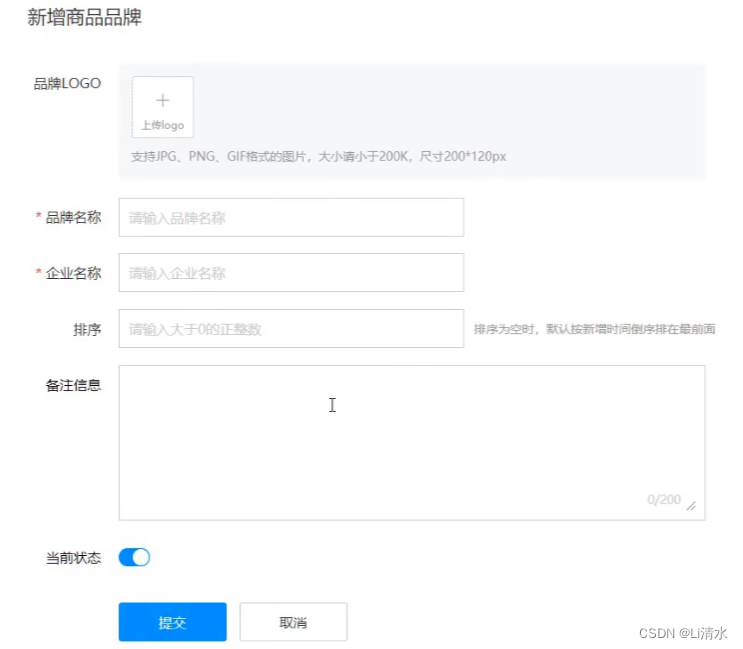 接口方法
接口方法
void add(Brand brand);sql语句
<insert id="add">
insert into tb_brand(brand_name,company_name,ordered,description,status)
values(#{brand_name},#{company_name},#{ordered},#{description},#{status})
</insert>测试类
public class MybatisDemo3 {
public static void main(String[] args) throws IOException, ClassNotFoundException {
String resource = "mybatis-config.xml";
InputStream inputStream = Resources.getResourceAsStream(resource);
SqlSessionFactory sqlSessionFactory = new SqlSessionFactoryBuilder().build(inputStream);
SqlSession sqlSession = sqlSessionFactory.openSession();
BrandMapper userMapper = sqlSession.getMapper(BrandMapper.class);
int status = 1;
String company_name = "菠萝手机";
String brand_name = "菠萝";
int ordered = 1;
String description = "美国有苹果,中国有菠萝";
Brand brand = new Brand();
brand.setStatus(status);
brand.setCompany_name(company_name);
brand.setBrand_name(brand_name);
brand.setOrdered(ordered);
brand.setDescription(description);
userMapper.add(brand);
//事务提交
sqlSession.commit();
sqlSession.close();
}
}主键返回
实现可查询主键id的值
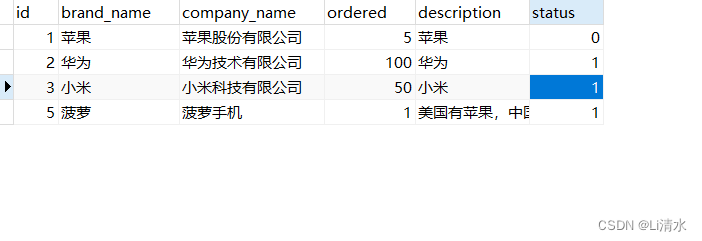
因为事务回滚导致少了id=4
因此查询菠萝的id的值为5
将sql语句改为
<insert id="add" useGeneratedKeys="true" keyProperty="id">
insert into tb_brand(brand_name,company_name,ordered,description,status)
values(#{brand_name},#{company_name},#{ordered},#{description},#{status})
</insert>即添加
useGeneratedKeys="true" keyProperty="id"9、修改
修改全部字段
实现

Mapper接口
void update(Brand brand);SQL语句
<update id="update">
update tb_brand
<set>
<if test="brand_name != null and brand_name != ''">
brand_name = #{brand_name},
</if>
<if test="company_name != null and company_name != ''">
company_name = #{company_name},
</if>
<if test="ordered != null">
ordered = #{ordered},
</if>
<if test="description != null and description != ''">
description =#{description},
status = #{status}
</if>
where id = #{id}
</set>
</update>测试类
public class UpdateTest {
public static void main(String[] args) throws IOException
{
String resource = "mybatis-config.xml";
InputStream inputStream = Resources.getResourceAsStream(resource);
SqlSessionFactory sqlSessionFactory = new SqlSessionFactoryBuilder().build(inputStream);
SqlSession sqlSession = sqlSessionFactory.openSession(true);
BrandMapper brandMapper = sqlSession.getMapper(BrandMapper.class);
Brand brand = new Brand();
brand.setId(5);
brand.setBrand_name("香飘飘");
brand.setCompany_name("香飘飘");
brand.setDescription("香飘飘");
brand.setOrdered(100);
brand.setStatus(1);
brandMapper.update(brand);
sqlSession.close();
}
}修改动态字段
实现修改密码功能(想单独改哪个值就改哪个值)
如果调用接口却不给参数,则数据库会出现null值🤦♂️
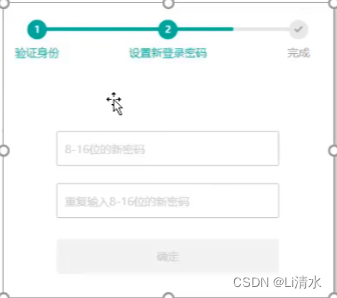
实现
只需要在SQL语句中添加条件,添加<set>标签
<update id="update">
update tb_brand
<set>
<if test="brand_name != null and brand_name != ''">
brand_name = #{brand_name},
</if>
<if test="company_name != null and company_name != ''">
company_name = #{company_name},
</if>
<if test="ordered != null">
ordered = #{ordered},
</if>
<if test="description != null and description != ''">
description =#{description},
status = #{status}
</if>
where id = #{id}
</set>
</update>10、删除
单个删除

Mapper接口
void delete(int id);SQL语句
<delete id="delete">
delete from tb_brand where id = #{id}
</delete>测试类
public class DeleteTest {
public static void main(String[] args) throws IOException, IOException {
String resource = "mybatis-config.xml";
InputStream inputStream = Resources.getResourceAsStream(resource);
SqlSessionFactory sqlSessionFactory = new SqlSessionFactoryBuilder().build(inputStream);
SqlSession sqlSession = sqlSessionFactory.openSession(true);
BrandMapper brandMapper = sqlSession.getMapper(BrandMapper.class);
brandMapper.delete(2);
sqlSession.close();
}
}批量删除

实现
传id数组,sql遍历数组,一个一个删掉
Mapper接口
void deleteByIds(@Param("ids") int[] ids);SQL语句
<delete id="deleteByIds">
delete from tb_brand where id in
<foreach collection="ids" item="id" open="(" separator="," close=")">
#{id}
</foreach>
</delete>测试类
public class DeleteTest2 {
public static void main(String[] args) throws IOException, IOException {
String resource = "mybatis-config.xml";
InputStream inputStream = Resources.getResourceAsStream(resource);
SqlSessionFactory sqlSessionFactory = new SqlSessionFactoryBuilder().build(inputStream);
SqlSession sqlSession = sqlSessionFactory.openSession(true);
BrandMapper brandMapper = sqlSession.getMapper(BrandMapper.class);
int []ids = {5,6};
brandMapper.deleteByIds(ids);
sqlSession.close();
}
}注解开发😍
优点:对于简单的SQL语句使用注解开发会非常便捷。
@Select("select * from tb_user where id = #{id}")
public User selectById(int id);查询:@Select
添加:@Insert
修改: @Update
删除:@Delete
缺点:对于复杂的SQL语句应使用xml映射文件编写。
<?xml version="1.0" encoding="UTF-8" ?>
<!DOCTYPE mapper
PUBLIC "-//mybatis.org//DTD Mapper 3.0//EN"
"http://mybatis.org/dtd/mybatis-3-mapper.dtd">
<mapper namespace="mapper.BrandMapper">
<insert id="add" useGeneratedKeys="true" keyProperty="id">
insert into tb_brand(brand_name,company_name,ordered,description,status)
values(#{brand_name},#{company_name},#{ordered},#{description},#{status})
</insert>
<update id="update">
update tb_brand
<set>
<if test="brand_name != null and brand_name != ''">
brand_name = #{brand_name},
</if>
<if test="company_name != null and company_name != ''">
company_name = #{company_name},
</if>
<if test="ordered != null">
ordered = #{ordered},
</if>
<if test="description != null and description != ''">
description =#{description},
status = #{status}
</if>
where id = #{id}
</set>
</update>
<delete id="delete">
delete from tb_brand where id = #{id}
</delete>
<delete id="deleteByIds">
delete from tb_brand where id in
<foreach collection="ids" item="id" open="(" separator="," close=")">
#{id}
</foreach>
</delete>
<select id="findAll" resultType="pojo.Brand">
select * from tb_brand
</select>
<select id="findById" resultType="pojo.Brand">
select * from tb_brand where id = #{id}
</select>
<!-- <select id="selectByCondition" resultType="pojo.Brand">-->
<!-- select * from tb_brand-->
<!-- where status = #{status}-->
<!-- and brand_name like #{brand_name}-->
<!-- and company_name like #{company_name}-->
<!-- </select>-->
<select id="selectByCondition" resultType="pojo.Brand">
select * from tb_brand
<where>
<if test="status != null">
and status = #{status}
</if>
<if test="brand_name != null and brand_name != ''">
and brand_name like #{brand_name}
</if>
<if test="company_name != null and company_name != ''">
and company_name like #{company_name}
</if>
</where>
</select>
<select id="selectByConditionOne" resultType="pojo.Brand">
select * from tb_brand
where
<choose><!--相当于switch-->
<when test="status != null"><!--相当于case-->
status = #{status}
</when>
<when test="brand_name != null and brand_name != ''">
brand_name like #{brand_name}
</when>
<when test="company_name != null and company_name != ''">
company_name like #{company_name}
</when>
<otherwise><!--当用户一个条件都不给-->
1=1
</otherwise>
</choose>
</select>
</mapper>💕完结撒花!💕



